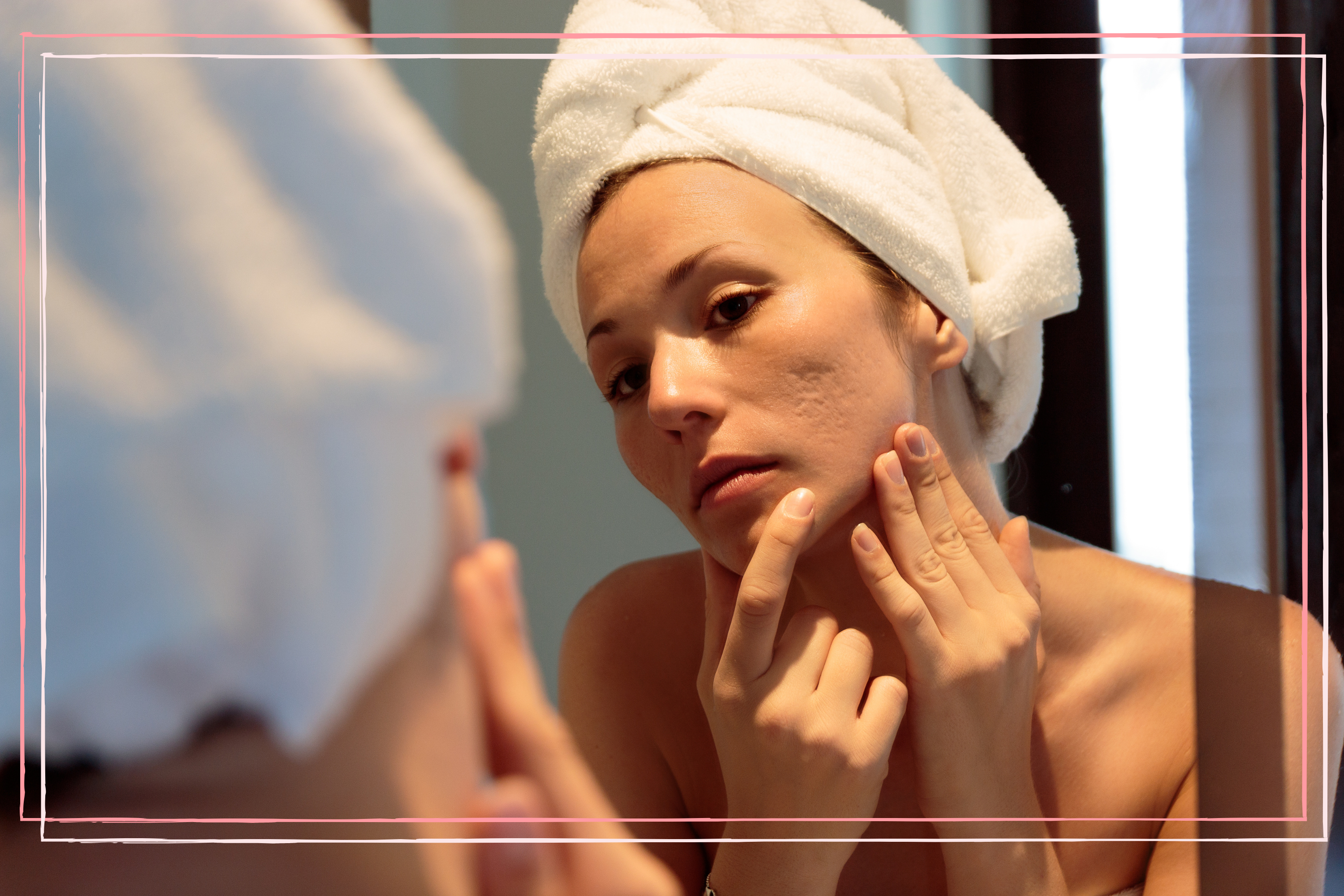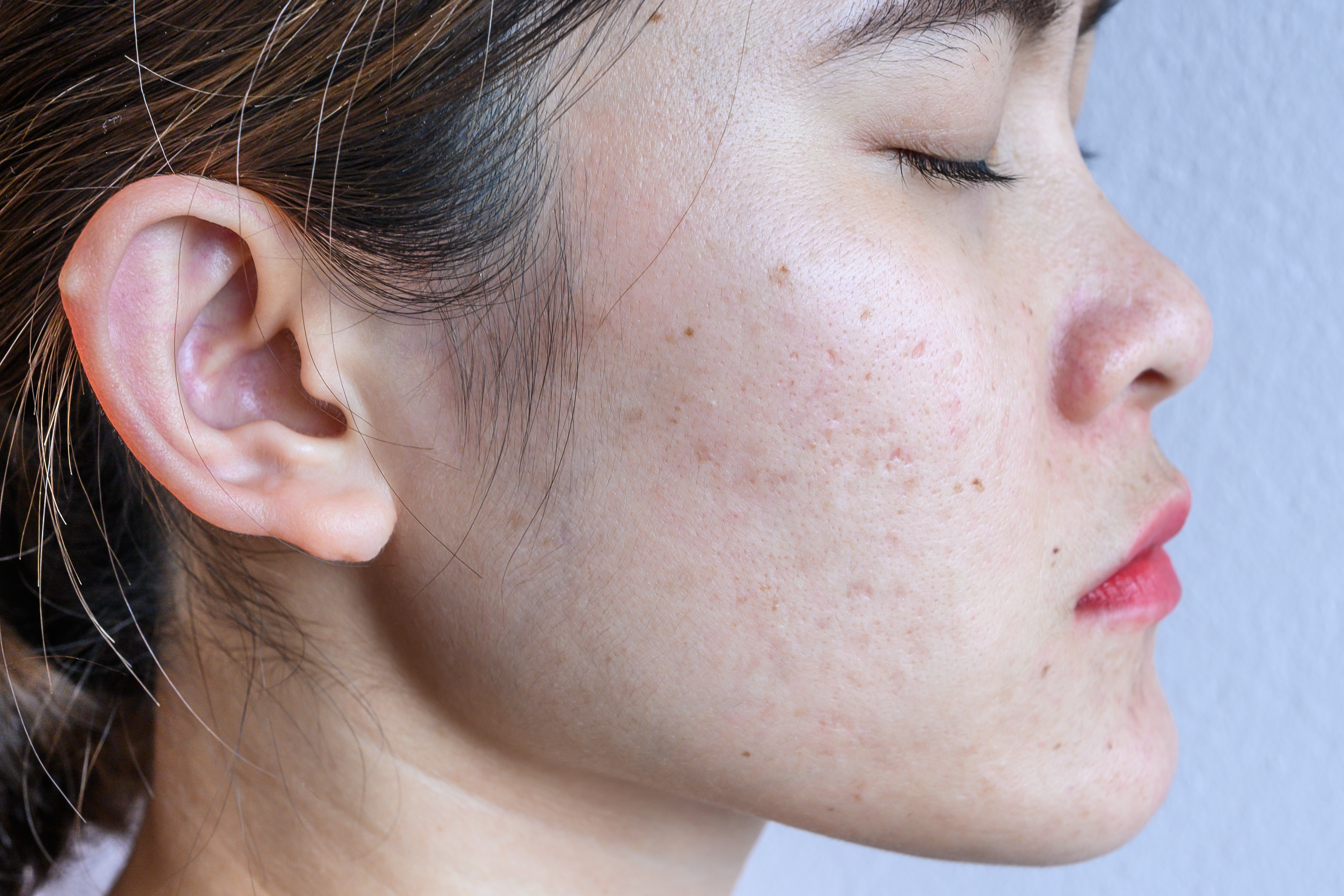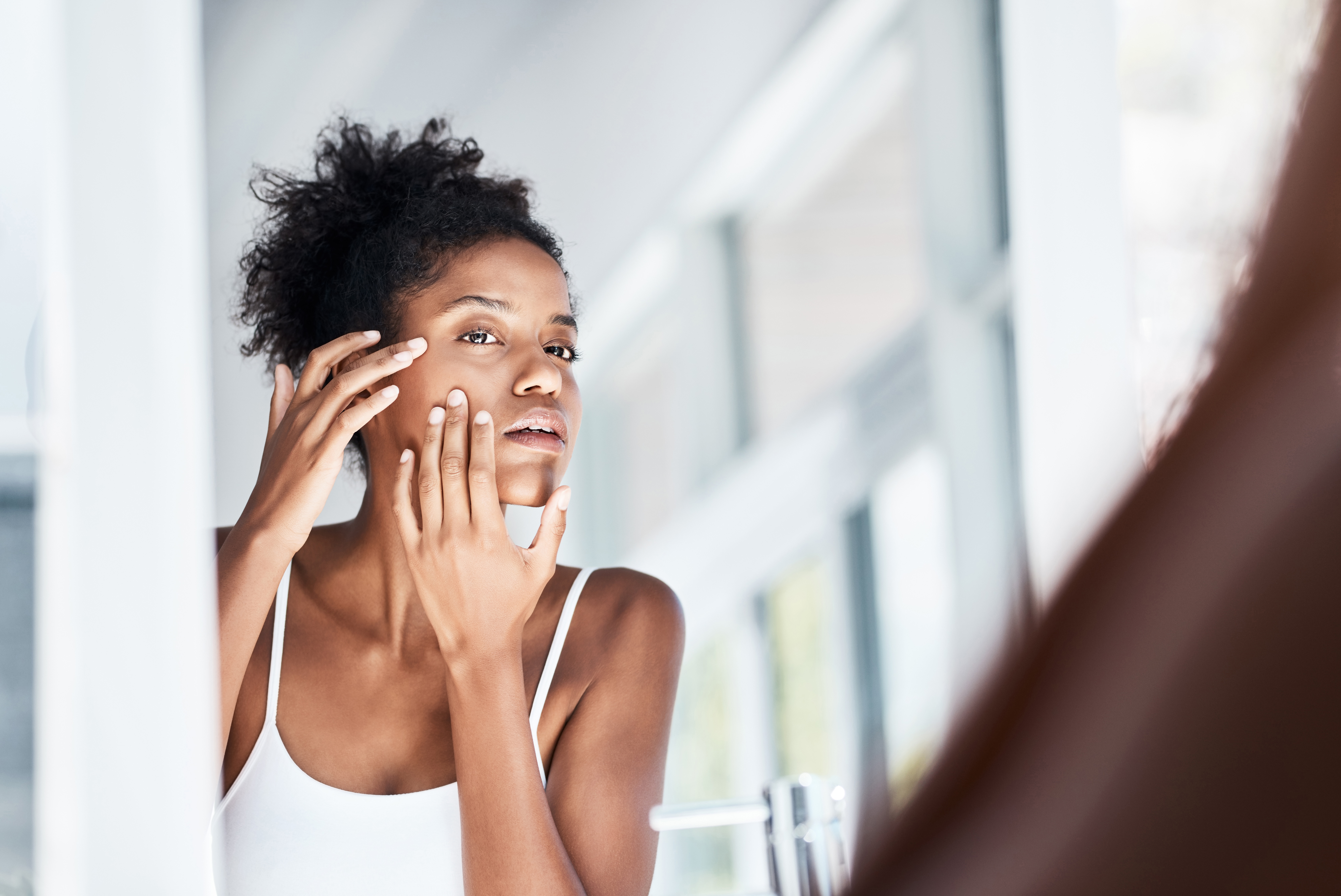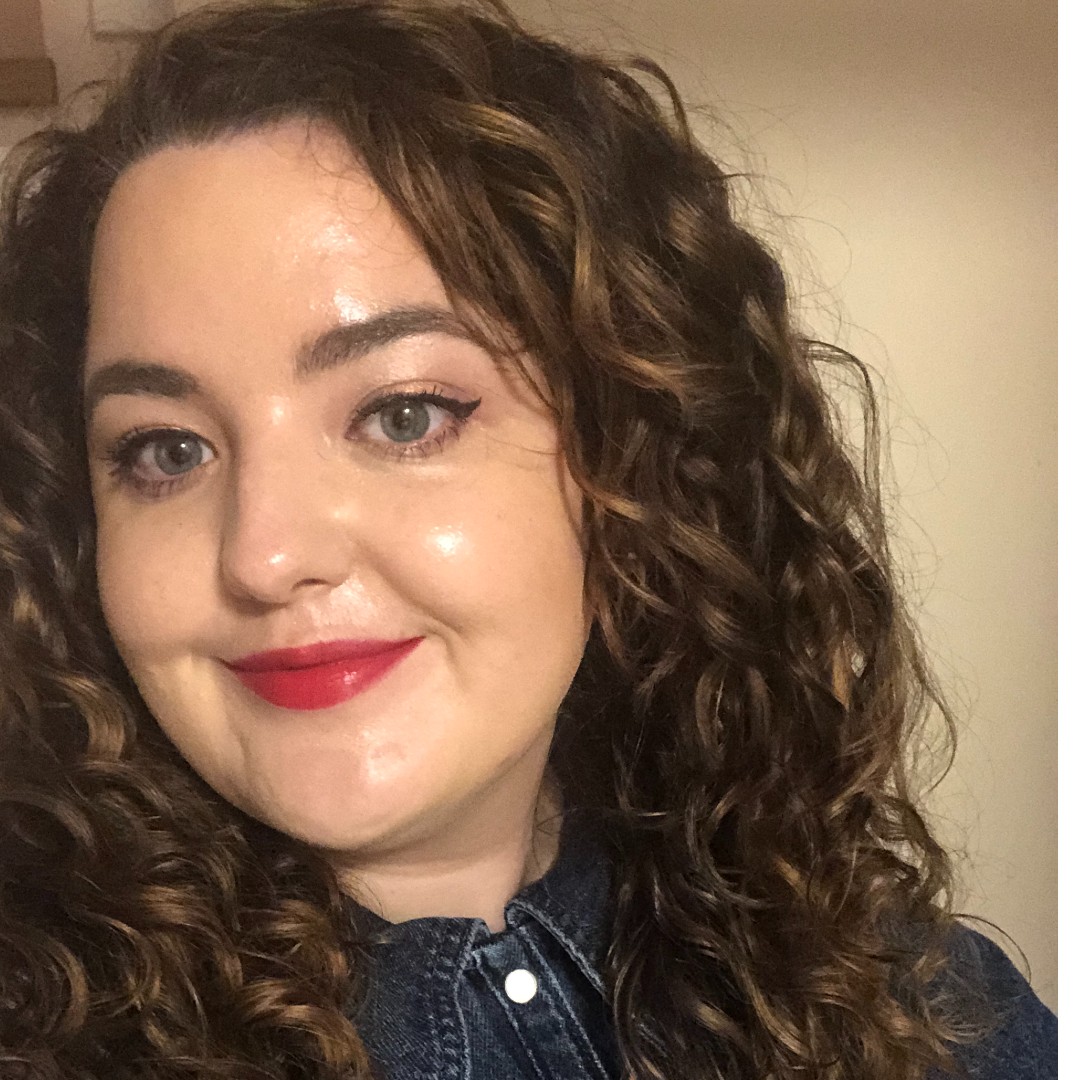What are acne scars and do they go away naturally?
We've asked the experts


Parenting advice, hot topics, best buys and family finance tips delivered straight to your inbox.
You are now subscribed
Your newsletter sign-up was successful
If you’ve ever noticed any markings on your skin and wondered what are acne scars, you’re not alone.
There’s a lot of focus on treating acne and beating blemishes, but it’s easy to forget about the aftermath of scarring and marks, after all your hard work zapping those zits. “Acne scars are the result of inflammation of acne blemishes.” says renowned plastic surgeon and scar expert Dr Dean Rhobaye. “The acne pore swells, and a breakdown occurs in the wall of the pore. Some acne blemishes are small, and the scars created are shallow and heal quickly. Sometimes the contents of blemishes spill into the surrounding tissue and cause deeper scars.”
So, if you have acne, it’s likely you’ve spent a lot of time learning about how to get rid of spots, then have been surprised to be left with some marks on your skin. How to get rid of acne scars can be straightforward, but firstly, let’s get to the root cause. What are acne scars, and why do we get them?
What are acne scars?
Acne is nothing to do with how to cleanse your face - it's normally hormonal. The answer to the cause of what are acne scars is probably something you can guess - they're caused by picking or squeezing at the skin during a breakout, which causes inflammation and interrupts the healing process leaving lasting damage to your skin.
The type of acne scars you’re left with after a breakout is determined by the severity of your acne. It might be red marks, bumps or what seems like ‘holes’ in your skin that have been left behind. Identify what you’ve got before you try to treat it.

If you’ve got red marks that won’t shift after a pimple has healed, Dr Martin Wade, Consultant Dermatologist Medical Director of London Real Skin says, “When people ask what are acne scars, I explain that it is not actually skin pigmentation but rather a red colouration after having acne lesions. This is referred to as Post Inflammatory Erythema (PIE). The redness is a result of the inflammation that causes dilation of the blood vessels. It is part of the healing process and can last for months after the lesion is gone.”
The bump? That might be due to your body's immune system trying to heal the area. “The small bump remaining could be an increased collagen deposit or scar tissue that has occurred due to the inflammatory nature of the acne lesion.” says Dr Wade. “If a patient has experienced a very inflamed lesion, it will settle down - but can leave a gland, also referred to as a cyst, under the skin.”
Parenting advice, hot topics, best buys and family finance tips delivered straight to your inbox.
In cases of severely inflamed lesions, depressed or pitted scars are often left due to the depth of infection. These are the ones that look like holes in the skin, and are the most likely the thing you envision when you think about what are acne scars. They can be different levels of severity, and are hard to cover, even with camouflaging layers of the right foundation for you.
The two type of acne scars:
- Atrophic scars: Flat shallow depressions that heal below the surface of the skin. These tend to be associated with more cystic acne. There are three types of atrophic scars:
- Hypertrophic & Keloid scars: Rather than depressions in the skin, these types of scar leave a raised bump on the skin as a result of scar tissue. Hypertrophic scars are likely the same size of the pimple that caused them, whereas keloid scars are larger, growing beyond the original size of the pimple.
If you’ve experienced more severe bouts of acne that have resulted in ‘pitted’ or ‘depressed’ looking scars, talk to your doctor about the more specialised treatments, such as chemical peel or microdermabrasion - as listed below.
What is the difference between acne scars and acne marks?
Acne scars tend to be deeper, looking like tiny holes on the surface of your skin. Whilst marks tend to be leftover discolouration or pigmentation. Dr Dean Rhobaye explains that not all scarring cases are created equally. “Acne scars create irregularities in the skin's texture. They're raised or indented – and usually permanent.
"It occurs when normal tissue in the skin and collagen are destroyed and replaced with fibrous tissue," he adds. Scarring tends to be deeper than just surface marking, they're likely a result of a more intense blemish, or from damage caused by squeezing the spot.
Dr Rhobaye continues, "In contrast, acne marks are due to the remaining inflammation that is partly caused by the slow break-down of the non-surviving bacteria in the hair follicle. They are known as post-inflammatory hyperpigmentation; these are red or brown marks that often can go away by themselves in 3-6 months. However, in some cases these dark marks remain for longer."
When it comes to finding out what are acne scars and what are more harmless acne marking, you likely need to wait it out to see. If they gradually fade away after a few months they're marks, if they're deep and show no signs of budging, they're scars.
Do acne scars go away naturally?
Now that we know inside-out what are acne scars, it’s easier to understand the best treatment options. But do you need treatment at all - or will they fade on their own with time? Dermatologist Dr Elif Benar, who has over ten years of experience in the world of medical aesthetics says that it’s not a clear-cut answer.
“This usually depends on the type of scarring you have.” She says, “Some atrophic acne scars, like post-inflammatory hyperpigmentation, will fade after several weeks or months as the skin heals. Mild scars can be treated with over the counter products but unfortunately, severe acne scars do not go away entirely on their own. However, various treatments can help, laser skin resurfacing can really help, as can micro-needling treatments, skin peels, and microdermabrasion.”
If your scars aren’t affecting you too badly, you may feel comfortable waiting for a few weeks or months to see how they fare on their own. But if they’re getting you down, there are treatment options out there - consult a dermatologist you trust for the best treatment plan options.

How to prevent acne scars
Prevention is always better than cure, and you'll have less questions about what are acne marks when you have less of them to deal with.
Plastic surgeon and scar expert Dr Rhobaye says that keeping control of your acne as it's occurring will help prevent scarring. "Acne is caused by blocked hair follicles and oil glands resulting from hormonal changes. Acne scarring occurs due to the damage produced by the inflammatory process that is part of the condition. Therefore, it is vital to get good control of the acne and reduce the inflammation as soon as possible to prevent extensive permanent scarring."
He also lists his non-negotiable rules to prevent scarring after acne:
- Never squeeze or pick a spot. "Not only can burst spots damage the skin and cause scarring, squeezing, and picking can also lead to infection."
- Use the correct treatments for your existing acne. "If your symptoms are severe, you should be using prescription treatments, not simple over-the-counter products."
- Establish a daily skincare routine. "Acne is not caused by poor hygiene but keeping your skin clean can help to reduce the blockages in the skin that cause acne spots."
- Avoid scrubbing your face or using harsh skincare products. "Keeping your skin clean is important but washing it too harshly can cause damage."
- Wear sun lotion "This will help protect scars as they are healing. Sun damage can slow down the healing process."
- Quit smoking "Scars don’t heal as well in smokers."
Video of the Week

Rhiannon Derbyshire is the Senior Beauty Editor for Goodto, Woman & Home and other publications. She’s specialised in writing about beauty, fashion, interiors and health - though beauty remains her favourite topic. She lives in south London, and can often be found pootling around the commons while listening to a podcast.